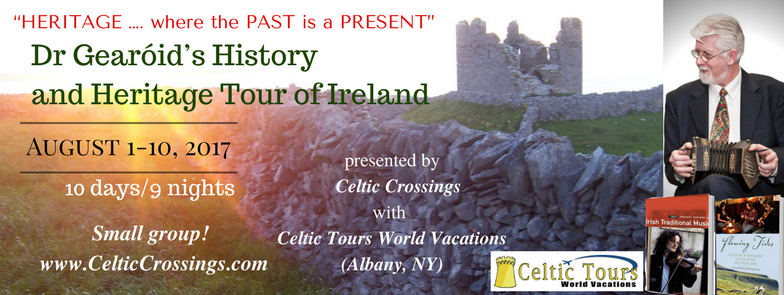Poets, Pipers, and Poisoned kings
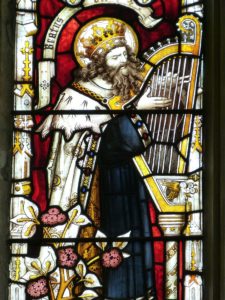 Mystery, mayhem and music flourished in ancient Ireland. Why else would Ireland’s best-known bards be awarded a seat of honour at the royal table? What power did they command or secrets keep?
Mystery, mayhem and music flourished in ancient Ireland. Why else would Ireland’s best-known bards be awarded a seat of honour at the royal table? What power did they command or secrets keep?
This privilege was no small event. Ireland’s poets and composers could guarantee a king’s place in history. And just as easily, they could ruin his name among his contemporaries.
Was this an ancient way to patronize the arts? Indeed, it was more likely the timeless ‘keep your friends close, and your enemies closer’ strategy. After all, history and memory are ultimately defined by the storyteller alone.
Such intrigue and mystery flow through Ireland’s folklore and music across countless centuries. Verses and tune titles are woven with rich accounts of battles won, loves lost, honour betrayed, and integrity sacrificed.
The Unsolved Murder of Owen Roe Ó Néill
“If Owen Roe O’Neill’s life had been spared, he would have been more than a match for the infamous, but warlike, Cromwell!”
— Napoleon Bonaparte, (‘Sketches of Irish Soldiers in Every Land, 1881’)
Noted Irish cultural historian and Celtic Crossings’ expert, Professor Gearóid Ó hAllmhuráin tells of one such story. Look for his forthcoming book ‘A Short History of Irish Traditional Music’ (O’Brien Press, Dublin, 2017).
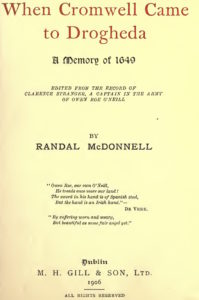
Under the dark clouds of invasion, a courageous hero arose from the noble Ó Néill family of Tyrone – Eoghan Rua (in English ‘Owen Roe’). After years as a commissioned officer in the Spanish Army serving in Flanders during the Eighty Years’ War, he was summoned home in Ireland’s desperate hour of need.
Fearlessly, the nobleman helped to mastermind Ireland’s 1641 rebellion and forged ahead. Ó Néill was the only man thought capable of stopping Cromwell’s invasion of Ireland. A charismatic military leader, Ó Néill began preparing an army in response to the horrific slaughter of innocents at Drogheda and Wexford by Cromwell’s forces.
According to written accounts, Ó Néill was in fierce spirit, with “eagerness to show his goodwill and his entire forgetfulness of past injuries”. Such is reported in When Cromwell Came to Drogheda, A Memory of edited from the Record of Clarence Stranger, A Captain in the Army of Owen Roe O’Neill written in 1906 by Randal McDonnell.
INTIMATE BETRAYAL
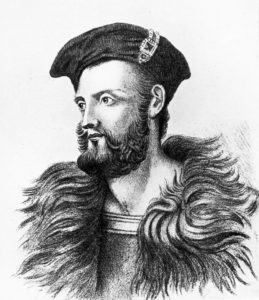 Just when hope was highest, tragedy struck and Ireland’s inspirational leader was mysteriously assassinated before he could engage in battle.
Just when hope was highest, tragedy struck and Ireland’s inspirational leader was mysteriously assassinated before he could engage in battle.
Whispered rumours suggested he fell victim to the nobleman Sir Charles Coote. Coote invited Ó Néill and his chief officers to dine with him. In the course of the evening amid a ‘great parade of hospitality and extraordinary plenty’, Coote slipped poison into Ó Néill’s meal. The slow-acting toxin weakened Eoghan Rua, delaying his journey from Derry to Tyrone and Monaghan.
And yet, Ó Néill remained determined to lead his forces into battle.
A second rumour tells of a woman placing poison in his shoes before the banquet in Derry. After several rounds of vigorous dancing, the heat from his feet drew the poison into his bloodstream and straight to his heart.
Finally, a third account suggests that Eoghan Rua was poisoned with a pair of russet boots, gift from the Plunkets of County Louth. Plunket boasted later that he “had done the English a good service by despatching Ó Néill out of the world.”
Arriving in Cavan, Eoghan Rua was desperately ill, unable to ride or even suffer being carried on a litter. Regardless of the true perpetrator, the mighty Eoghan Rua Ó Néill died on the 6th of November 1649.
The Lament for Owen Roe Ó Néill
In his honour, Ireland’s legendary blind harper Turlough O’Carolan composed The Lament for Owen Roe Ó Néill. While the true culprits have faded from memory, Turlough O’Carolan’s poignant lament has secured Eoghan Rua’s legacy in common memory for centuries. O’Carolan’s signature composition remains popular in the Irish traditional repertoires today. And the name of Owen Roe, the mighty Eoghan Rua, is familiar to every Irish school child.
“Owen Roe, our own O’Neill—
He treads once more our land!
The sword in his hand is of Spanish steel,
But the hand is an Irish hand!
–Mr. Aubrey de Vere, Irish poet
Music in Ancient Ireland: 3 Orders of Irish Bards
What was this mysterious influence that ancient poets held over the powerful? We sometimes forget that Irish bards were more than mere poets. They were genealogists, historians and musicians. They were held in high esteem in medieval Ireland. In 1868, French historian Count de Montalembert described three distinct orders of bards guarding the music in ancient Ireland.
1. Fileas, who sang of religion and war
2. Brehons, keepers and reciters of the ancient laws of the country
3. Seanchaithe, who enshrined the national history and antinquites in verse, and “above all, the genealogies and prerogatives of the ancient families”
Irish bards were powerful conduits of patriotism and prophets of national independence. In their hands, music and poetry became weapons and bulwarks against foreign oppression. They were courageous, even with a price set upon their own heads.
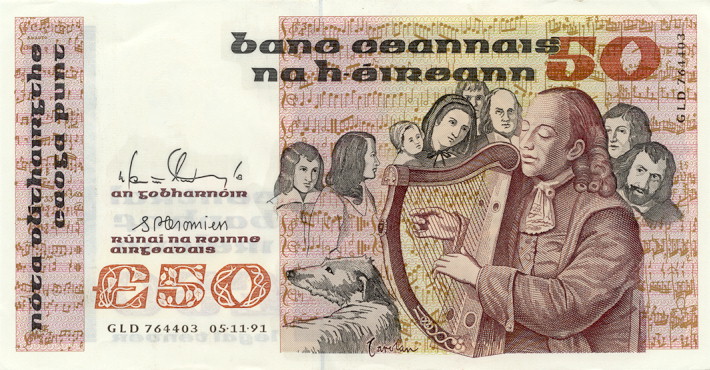
Share
Please share the story of Eoghan Rua with your friends via Facebook and Twitter! May his legacy extend to the round corners of the world! And remember, keep your friends close and your musician friends closer!
Discover more–
Join Dr Gearóid Ó hAllmhuráin on his 2017 History and Heritage Tour of Ireland and discover the ‘history within the history’ of Ireland!
